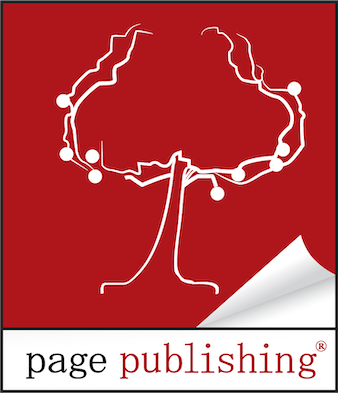
Group book signings are an excellent way for authors to promote their work while fostering a sense of community with other writers. By bringing together multiple authors, these events draw larger crowds, create cross-promotion opportunities, and offer readers a chance to meet and discover new talent. If you’re an author or event organizer looking to plan a successful group book signing event, collaborating effectively with other authors is key to making the occasion a hit.
Here’s how you can plan and execute a group book signing that benefits everyone involved.
1. Choose the Right Authors for the Event
The first step in creating a successful group book signing is to choose the right mix of authors. Look for writers whose works complement one another. For example, you could gather authors from the same genre, such as children’s literature, romance, or fantasy. Alternatively, you can curate a group based on a shared theme, like stories about self-discovery or books by local writers.
Some factors to consider when choosing authors:
- Genre Similarity: Authors in the same or related genres are likely to appeal to a similar audience, increasing the chances of drawing a larger crowd.
- Audience Overlap: If the authors have overlapping fan bases or reader demographics, it can create a great opportunity for cross-promotion.
- Author Compatibility: Consider how well the authors might work together. A group event thrives when participants are enthusiastic, cooperative, and willing to support each other’s success.
2. Plan the Logistics Together
Once you have your author group in place, work together to plan the event logistics. This involves choosing a venue, setting a date and time, and organizing the flow of the event. Involving all participating authors in the planning process ensures that everyone feels ownership of the event and will be more invested in its success.
Here are some key points to consider:
- Venue Selection: Bookstores, libraries, and community centers are popular venues for book signings. You could also consider hosting the event at a literary festival or even a café or gallery with space for such gatherings. The venue should be easily accessible and spacious enough to accommodate readers.
- Date and Time: Choose a date and time that works for all authors and maximizes reader turnout. Weekends or evenings tend to work well, especially for readers who may be working or in school during weekdays.
- Event Format: Decide on the format. Will authors each take turns talking about their books, or will there be a joint panel discussion? Will there be a Q&A session, followed by individual signings? Planning the format in advance ensures the event runs smoothly and keeps attendees engaged.
3. Collaborate on Promotion
Promotion is one of the biggest advantages of a group book signing event. By collaborating with other authors, you can pool your resources and reach a wider audience. Start promoting the event well in advance to build excitement and ensure good attendance.
Ways to promote the event:
- Social Media Collaboration: Have all participating authors share event details on their social media platforms, tagging each other, and using a common hashtag to generate buzz. Encourage cross-posting and mutual promotion to maximize visibility.
- Email Newsletters: Authors can send event invitations through their email lists. If each author promotes the event to their own subscribers, the combined reach can significantly increase attendance.
- Local Media and Bookstores: Contact local newspapers, radio stations, and book bloggers to promote the event. Ask the hosting venue to feature the event on their website and social media pages as well.
- Flyers and Posters: Print promotional materials like flyers or posters for the venue and local businesses. Even a digital version for social media or email sharing can help spread the word effectively.
4. Create a Memorable Reader Experience
Group book signings should offer more than just book signings—they should create a memorable experience for attendees. Plan ways to make the event engaging and interactive.
Consider these ideas to elevate the reader experience:
- Author Q&A Panel: Host a brief Q&A session where readers can ask questions about each author’s writing process, inspirations, and characters. This gives the audience a deeper connection to the authors and their books.
- Exclusive Content or Giveaways: Offer attendees something special, like an exclusive short story, bookmark, or book-themed giveaway. Consider collaborating on a group giveaway where each author contributes something unique.
- Themed Decorations or Displays: If the authors write in similar genres or have a shared theme, create decorations or displays that reflect those elements. For example, if it’s a group of fantasy writers, the venue could feature magical props, banners, or character posters.
5. Provide an Opportunity for Networking and Connection
Group book signings are also a great opportunity for authors to connect not only with readers but with each other. Collaborating on such an event can open doors to future partnerships, co-writing projects, and a larger support network.
To encourage networking:
- Host a Meet-and-Greet: After the signing, host a casual meet-and-greet with light refreshments. This allows readers to interact with the authors one-on-one and creates a more intimate, personal atmosphere.
- Invite Local Writers and Bloggers: Reach out to local writers, book bloggers, and influencers to attend the event. Their participation can help promote the event and create more networking opportunities for everyone involved.
6. Follow Up After the Event
After the event, it’s important to continue promoting the participating authors and thanking the attendees. A successful follow-up helps to maintain the connections made during the event and can also lead to future collaborative opportunities.
- Post-Event Social Media Posts: Share photos and videos from the event on social media, tagging the authors and attendees. Recap the event highlights and thank everyone for their participation.
- Send a Thank-You Email: Authors can send a thank-you email to their subscribers or those who attended, including a recap of the event and links to their websites or books.
- Review and Reflect: Meet with the participating authors afterward to review the event’s success, discuss what worked well, and explore ideas for future group events.
Conclusion
Collaborating with other authors for a group book signing event offers many benefits, including increased visibility, shared promotional efforts, and a more dynamic reader experience. By working together on planning, promotion, and creating a memorable event, authors can build lasting relationships with both readers and fellow writers. A well-executed group book signing not only drives book sales but also fosters a sense of community that can continue long after the event is over.
